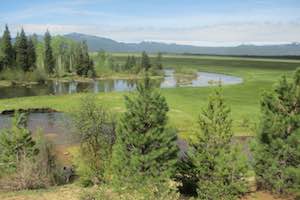
By News on the Net —— Bio and Archives September 7, 2016
Comments | Print This | Subscribe | Email Us
 PRESS RELEASE -- Western States Constitutional Rights LLC
--Unconstitutional Congressional Legislation to Hand Western and Rural Lands and Waters to Native American Tribes
Polson, MT – Early yesterday, at the start of the 2016 lame duck session of the 114th Congress, the nonprofit Western States Constitutional Rights, LLC bombarded the offices of the Montana Congressional Delegation and various U.S. House and Senate Committee and Subcommittee Chairs with their detailed written objections to four unconstitutional bills now before Congress:
PRESS RELEASE -- Western States Constitutional Rights LLC
--Unconstitutional Congressional Legislation to Hand Western and Rural Lands and Waters to Native American Tribes
Polson, MT – Early yesterday, at the start of the 2016 lame duck session of the 114th Congress, the nonprofit Western States Constitutional Rights, LLC bombarded the offices of the Montana Congressional Delegation and various U.S. House and Senate Committee and Subcommittee Chairs with their detailed written objections to four unconstitutional bills now before Congress:S.3013 - The Salish and Kootenai Water Right Settlement Act of 2016 (s.3013), authored/sponsored by U.S. Senator Jon Tester (MT-D), would, if enacted into federal law, cede to the Confederated Salish and Kootenai Tribes of the Flathead Reservation extensive federal water rights comprising approximately 20% of State waters. Such grant would displace Montana’s jurisdiction over one-fifth of the State’s plentiful waters and appurtenant lands and effectively supersede, if not, extinguish the private water and land rights of northwestern Montanans, and potentially all western and rural Americans. S.3014 – The Tribal Forestry Participation and Protection Act of 2016, authored/sponsored by U.S. Senator Steve Daines, (MT-R); H.R. 2647 – The Resilient Federal Forests Act of 2015, authored/sponsored by U.S. Representative Bruce Westerman (AR-R); and S.3085 - The Emergency Wildfire and Forest Management Act of 2016, authored/sponsored by U.S. Senator Pat Roberts (KS-R), each contain tribal forestry management provisions that would, if enacted into federal law, provide all Native American Tribes located near U.S. national forest and park lands with federal contracts to manage, oversee and control them for federal regulatory and other purposes. Native American Tribes need only show the U.S. Departments of Interior and Agriculture that the forest and park lands of interest are somehow connected with a prior Indian Treaty, Indian Reservation or Indian Tribal Homeland. The tribal forestry management provisions within these bills would effectively further diminish the private property (water and land rights) of rural Americans throughout the United States to tribal sovereign governments not subject to the U.S. Constitution.
News from around the world